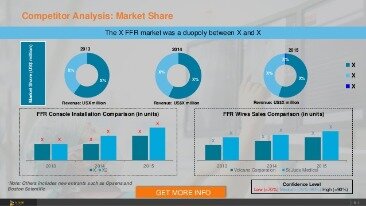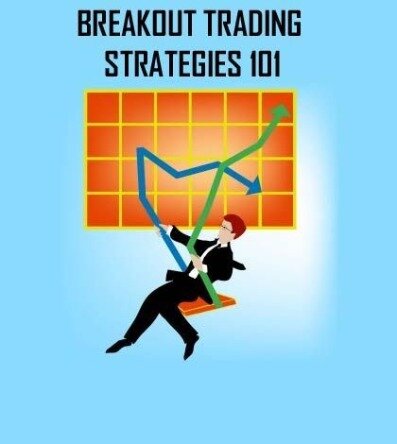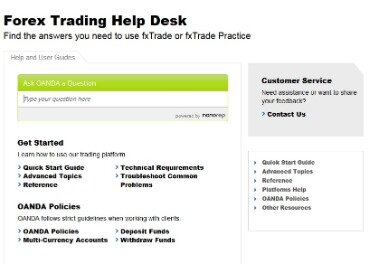Contents:


Arbitration and mediation case participants and FINRA neutrals can view case information and submit documents through this Dispute Resolution Portal. The offers that appear in this table are from partnerships from which Investopedia receives compensation. This compensation may impact how and where listings appear. Investopedia does not include all offers available in the marketplace. Investopedia requires writers to use primary sources to support their work. These include white papers, government data, original reporting, and interviews with industry experts.

Rule 104 of Regulation M governs stabilization transactions, syndicate short covering activity, and penalty bids. A «yes» answer to any of these questions indicates that you may need to register as a dealer. A person who issues or originates securities that he also buys and sells. A «yes» answer to any of these questions indicates that you may need to register as a broker. Each AP must ensure proficiency requirements— sole proprietor, swap, and forex AP. The term «Reportable Security» shall mean all designated securities as defined in Rule 6320B.
Find Clients and Referrals and Sign Them Up!
This section covers the factors that determine whether a person is a broker or dealer. It also describes the types of brokers and dealers that do not have to register with the SEC. Self-regulatory organizations are described in Part III, below. FCMs supplytrading platformson which clients have the ability to place trades online and are responsible for account management. However, the majority of FCMs would find it financially impossible to open offices around the country to serve their customers.
SEC releases new cybersecurity-related proposals and reopens … – Lexology
SEC releases new cybersecurity-related proposals and reopens ….
Posted: Tue, 04 Apr 2023 07:00:00 GMT [source]
Rule 15g-9 exempts certain transactions from the requirements of Rule 15g-9. Pursuant to the rules of self-regulatory organizations, broker-dealers are required to arbitrate disputes with their customers, if the customer chooses to arbitrate. See e.g., NASD Code of Arbitration Procedure for Customer Disputes, Rule 12200; American Stock Exchange, Rule 600; and Chicago Board of Options Exchange, Rule 18.1.
Examples of Introducing Broker in a sentence
If the person has one or more master netting agreement in effect with a particular counterparty, the person may measure the current exposure arising from its swaps in any major category on a net basis, applying the terms of those agreements. Calculation of aggregate uncollateralized outward exposure. The aggregate uncollateralized outward exposure shall be the sum of those uncollateralized amounts across all of the person’s swap counterparties in the applicable major category. An Introducing broker, is a broker dealer who introduces customer accounts to a clearing broker dealer.
As such, subsidiaries and affiliates of banks that engage in broker-dealer activities are required to register as broker-dealers under the Act. Also, banks that act as municipal securities dealers or as government securities brokers or dealers continue to be required to register under the Act. Broker-dealers that limit their activity to government or municipal securities require specialized registration.
Providing a wide variety of trading instruments appeals to every investment style, whether clients prefer ETFs or Forex or to trade cryptocurrencies through CFDs. Fully Disclosed Brokers provide their clients with customer service and marketing. Broker clients can electronically trade or the broker may input trades for the client.
In determining the number and sequencing of markets to be assessed, reasonably balancing the likelihood of obtaining better prices with the risk that delay could result in a worse price. Require broker-dealers to review their best execution policies and procedures at least annually and present a report detailing the results of such review to their boards of directors or equivalent governing bodies . Give them advice every step of the way and introduce them to the trading platforms with demos.
Broker-dealers are subject to examination by the SEC and the SROs. The appropriate SRO generally inspects newly-registered broker-dealers for compliance with applicable financial responsibility rules within six months of registration, and for compliance with all other regulatory requirements within twelve months of registration. A broker-dealer must permit the SEC to inspect its books and records at any reasonable time. Broker-dealers must make and keep current books and records detailing, among other things, securities transactions, money balances, and securities positions. They also must keep records for required periods and furnish copies of those records to the SEC on request. Broker-dealers also must file with the SEC periodic reports, including quarterly and annual financial statements.
The Electronic Code of Federal Regulations
Therefore, purchase of mutual fund shares or variable product units using credit extended or arranged by the broker-dealer during the distribution period is a violation of Section 11. However, Exchange Act Rule 11d1-2 permits a broker-dealer to extend credit to a customer on newly sold mutual fund shares and variable insurance product units after the customer has owned the shares or units for 30 days. To apply for registration, you must file one executed copy of Form BD through the Central Registration Depository («CRD»), which is operated by FINRA. (The only exception is for banks registering as municipal securities dealers, which file Form MSD directly with the SEC and with their appropriate banking regulator.) Form BD contains additional filing instructions. The SEC does not charge a filing fee, but the SROs and the states may. Applicants that reside outside the U.S. must also appoint the SEC as agent for service of process using a standard form.
SEC proposes sweeping new package of cybersecurity … – Davis Polk
SEC proposes sweeping new package of cybersecurity ….
Posted: Tue, 21 Mar 2023 07:00:00 GMT [source]
This term means initial margin posted by a customer with a futures commission merchant, or by a non-clearing member futures commission merchant with a clearing member. This term means any person that has clearing privileges such that it can process, clear and settle trades through a derivatives clearing organization on behalf of itself or others. The derivatives clearing organization need not be organized as a membership organization. Require enhanced policies and procedures for broker-dealers that engage in certain “conflicted transactions” for or with retail customers (proposed Rule 1101). With more people spending time online and looking for ways to stretch their savings, now is the best time to build a client base for a partner brokerage.
Definition of Introducing Broker
A broker-dealer must establish procedures for disclosing this information before it extends credit to a customer for the purchase of securities. A broker-dealer must give the customer this information at the time the account is opened, and must also provide credit customers with account statements at least quarterly. An introducing broker acts as a middleman by matching an entity seeking access to markets with a counterparty willing to take the other side of the transaction. Generally speaking, IBs make recommendations while delegating the task of executing trades to someone who operates on a trading floor.
A broker-dealer claiming an exemption must comply with the notice requirements of Rule 17f-2. Broker-dealers may obtain fingerprint cards from their SRO and should submit completed fingerprint cards to the SRO for forwarding to the FBI on behalf of the Attorney General. Broker-dealers, including foreign broker-dealers registered with the Commission and unregistered broker-dealers in the United States, must comply with Regulation S-P, even if their consumers are non-U.S.
Positions for which, pursuant to law or a regulatory requirement, the person has assigned an amount of cash or U.S. Treasury securities that is sufficient at all times to pay the person’s maximum possible liability under the position, and the person may not use that cash or those Treasury securities for other purposes. Any commodity pool operator which, acting in its capacity as a commodity pool operator, solely operates commodity pools, regardless of whether that commodity pool operator is registered or exempt from registration in such capacity. Not held to hedge or mitigate the risk of another swap or security-based swap position, unless that other position itself is held for the purpose of hedging or mitigating commercial risk as defined by this definition or § 240.3a67–4 of this title.
Based on this important representation, the SEC, through interpretive statements and enforcement actions, and the courts, through case law, have set forth over time certain duties for broker-dealers. These include the duties to execute orders promptly, disclose certain material information (i.e., information the customer would consider important as an investor), charge prices reasonably related to the prevailing market, and fully disclose any conflict of interest. Credit Unions and Financial Institution «Networking» Arrangements. The exceptions and exemptions applicable to banks under the Exchange Act do not apply to other kinds of financial institutions, such as credit unions.

A person that is deemed to be a major swap participant shall continue to be deemed a major swap participant until such time that its swap activities do not exceed any of the daily average thresholds set forth within this rule for four consecutive fiscal quarters after the date on which the person becomes registered as a major swap participant. A person that is a major swap participant shall be deemed to be a major swap participant with respect to each swap it enters into, regardless of the category of the swap or the person’s activities in connection with the swap. However, if a person makes an application to limit its designation as a major swap participant to specified categories of swaps, the Commission shall determine whether the person’s designation as a major swap participant shall be so limited.
Introducing Broker (IB): Definition, Role, Registration, Examples
Make sure you have all the paperwork and the right credentials before you begin. Building a reputation requires trust and accountability on both sides is key. If you land a client early on who makes high-value trades only occasionally, that is good. If you have a client who is a rookie trader and wants to keep making trades every few days with moderate amounts, that is also good. The key is to keep earning commissions, and you will earn commissions by trades.
Codified “M&A Broker” Exemption Effective on March 29, 2023 – Lexology
Codified “M&A Broker” Exemption Effective on March 29, 2023.
Posted: Wed, 29 Mar 2023 07:00:00 GMT [source]
define introducing broker-dealers to establish, maintain, and enforce written policies and procedures reasonably designed to comply with the best execution standard while providing a limited exemption for introducing brokers (proposed Rule 1101). Codify a federal rules-based best execution standard for brokers, dealers, government securities brokers, government securities dealers, and municipal securities dealers and establish exceptions similar to those available today. If you are working with a reliable affiliate program – and you’re delivering clients – you should expect to receive help as an introducing broker. This can include trading apps and access to platforms for your clients.
Nevertheless, the proposal feels slanted in that direction . Transparency from the Commission here is critical, if that is what the agency ultimately desires or expects. The proposal would codify for the first time the federal-level best execution standard for brokers and related obligations.
- Free client relationship management tools to help you efficiently manage clients.
- Registration period for persons that can no longer take advantage of the exception.
- The rule contains exceptions for bona fide purchases, separate accounts, and investment companies.
- This can include trading apps and access to platforms for your clients.
- The Code of Federal Regulations is the official legal print publication containing the codification of the general and permanent rules published in the Federal Register by the departments and agencies of the Federal Government.
Limit orders are orders to buy or sell securities at a specified price. The Limit Order Display Rule requires that specialists and market makers publicly display certain limit orders they receive from customers. If the limit order is for a price that is better than the specialist’s or market maker’s quote, the specialist or market maker must publicly display it. The rule benefits investors because the publication of trading interest at prices that improve specialists’ and market makers’ quotes present investors with improved pricing opportunities. A broker-dealer may also be obligated under the antifraud provisions of the Act to disclose additional information to the customer at the time of his or her investment decision.
The clearing broker executes orders for the purchase and sale of securities in introduced accounts, as such orders are transmitted to it by the introducing broker. Upon execution of an order, the clearing broker issues a trade confirmation to the customer and clears and settles the executed trade with its counterparty on the exchange and with the introduced customer. The clearing broker may provide margin loans to introduced customers, upon their request, using the cash and securities in their introduced account as collateral of their margin loans. For positions in swaps that are not subject to daily mark-to-market margining and are not cleared by a registered or exempt clearing agency or a derivatives clearing organization, potential outward exposure equals the total notional principal amount of those positions, multiplied by the following factors on a position-by-position basis reflecting the type of swap.

An https://trading-market.org/ advises their clients but does not execute the trades themself. Instead, the IB delegates the trade to someone on the trading floor. Securities Exchange Act Rule 17a-5 specifies a broker-dealer that claims it’s exempt from Section 240.15c3-3 throughout the most recent fiscal year must file an exemption report.
From trade date to settlement date, our Securities Financing solutions provide depth of availability, transparent rates, global reach and automated lending and borrowing tools. Charge markups to clients based on IBKR stock borrow rates, entered as a variable or fixed percentage of our borrow rate. You can enter both types of markups and our system will apply the markup rate that results in the larger total amount. Meet your compliance obligations by notifying your clients of advisory fee details. Easily maintain different fee schedules for multiple client accounts.
IBs do not execute trades themselves; they refer the client to someone on the trading floor. The client directly pays the FCM, who runs the business. Alternatively, an IB will need additional financial resources if it tries to work without an FCM. In addition, an IB would have to spend a substantial amount on overhead—for accounting, trading, reporting, and trading platforms.
When you execute a stock trade, there are a number of actions that take place behind the scenes, or back office. While you may have bought and sold a stock in a matter of seconds, there is a complicated process that happens during the trade and after the trade, notably the settlement process to officially clear the trade and have it documented in the “books” to properly reflect the new owner of the shares. Documenting any PFOF arrangement, whether written or oral, including the parties, all qualitative and quantitative terms, and the date and terms of any changes. Is regulated by the Central Bank of Ireland , registered with the Companies Registration Office , and is a member of the Irish Investor Compensation Scheme .
